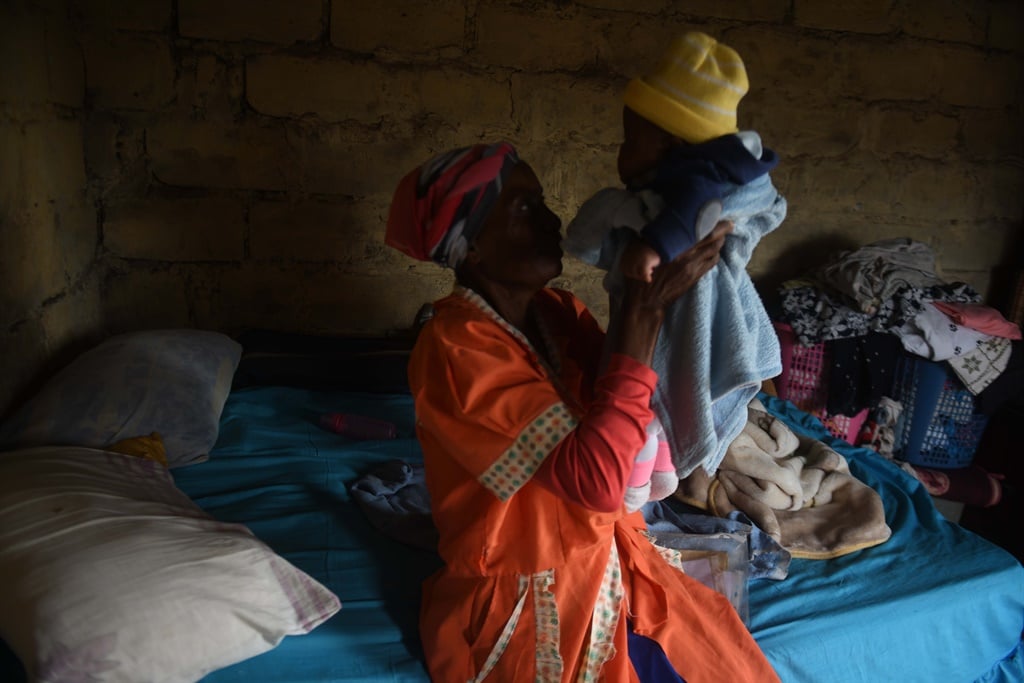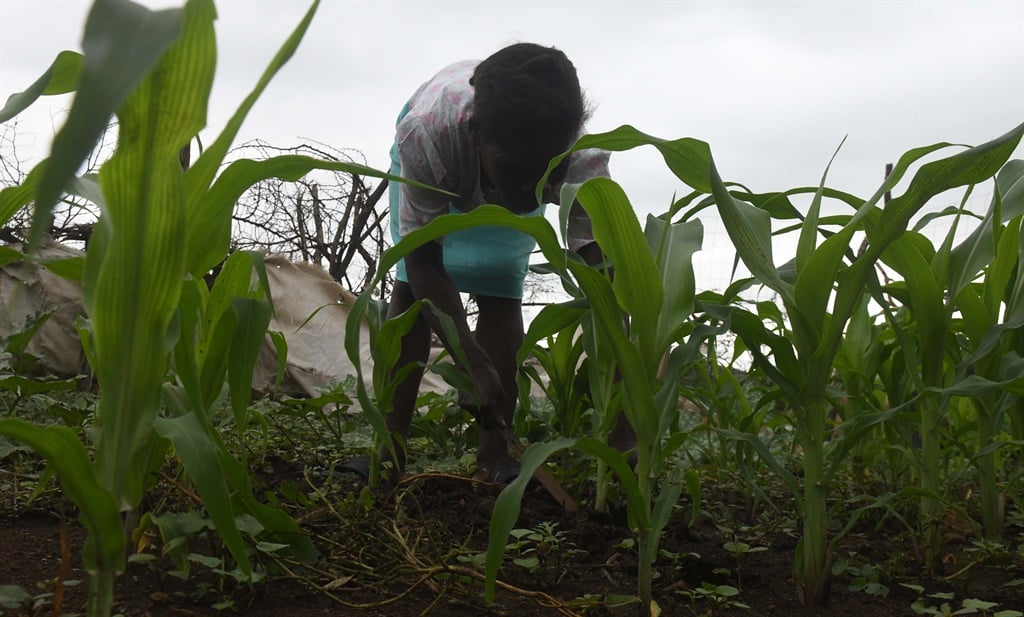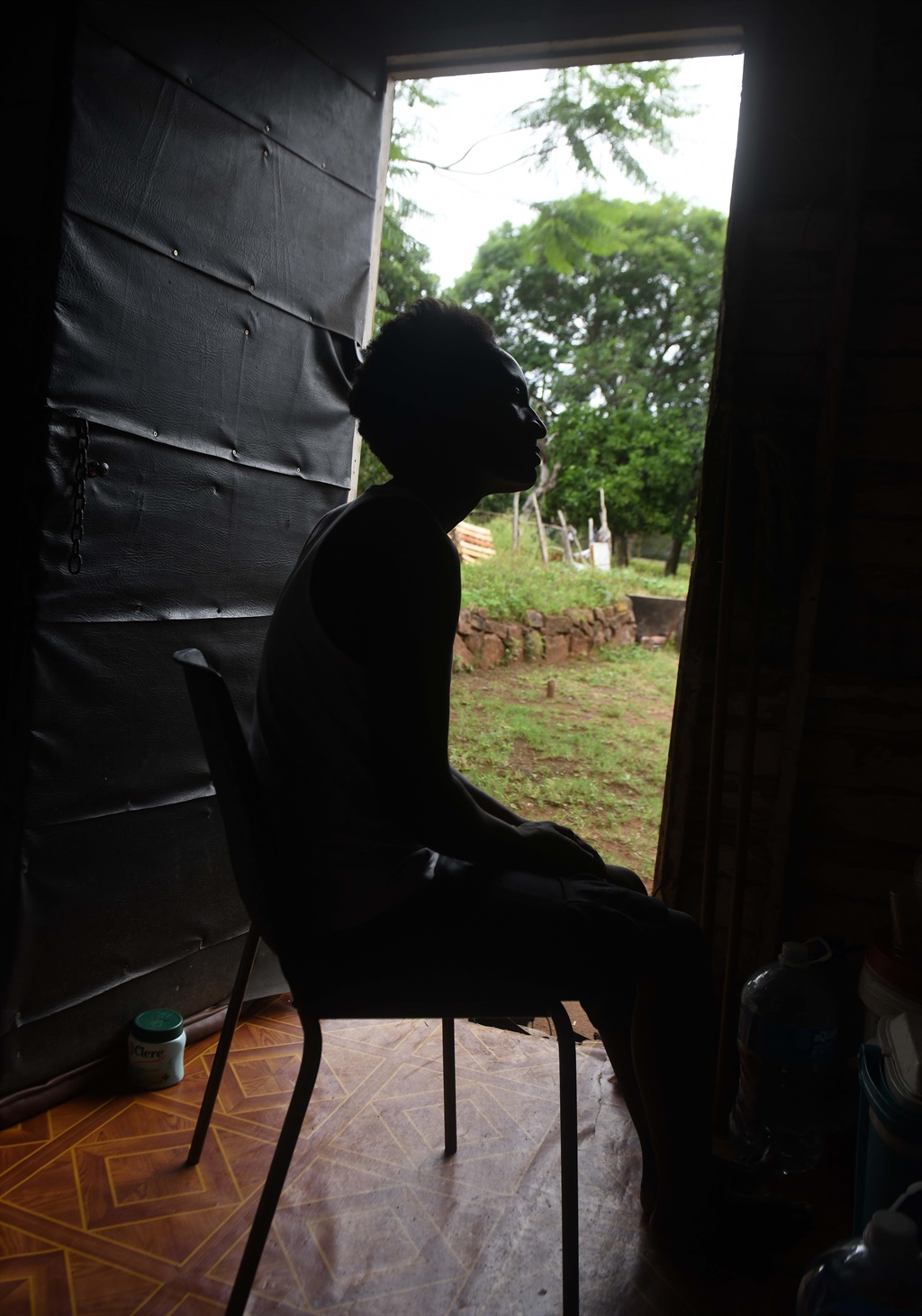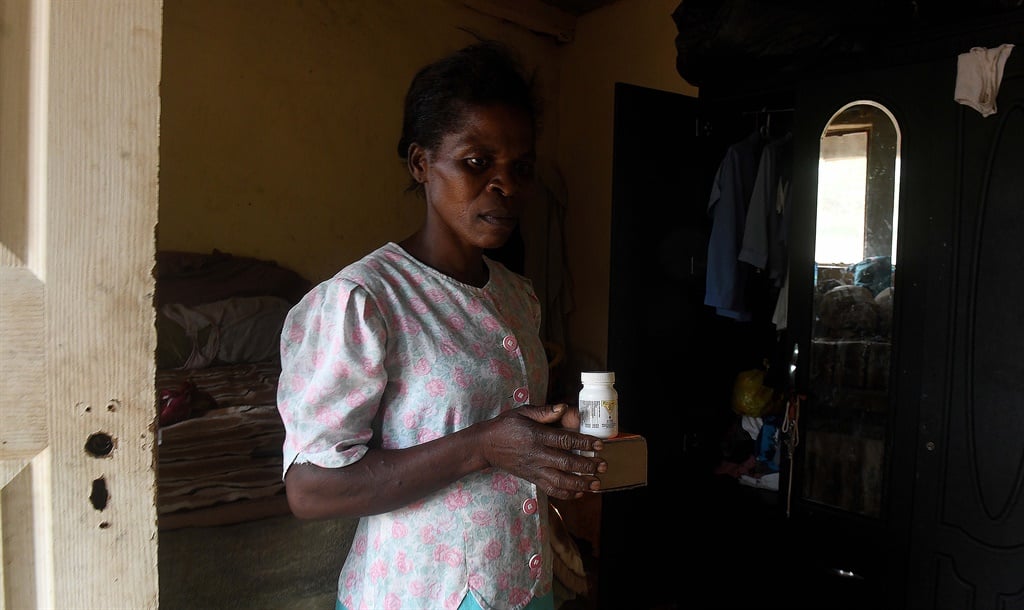
A heavy onus rests on our leaders to see us through the Covid-19 pandemic, yet this pandemic also calls on all of us to be active participants during this state of disaster and beyond. This includes making sure that constitutional rights are not disproportionately eroded in the process, writes Ektaa Deochand and Mbalenhle Baduza.
Empowered by section 27 of the Disaster Management Act (DMA), President Cyril Ramaphosa on Sunday declared a national state of disaster in South Africa.
This was an urgent and indeed an impressive response to the rapid spread of Covid-19 Coronavirus on our shores and around the world.
The declaration of a national disaster means government determined that the medical emergency posed by the Covid-19 virus, precipitated special circumstances that warrant immediate action beyond what is provided for in existing legislation – to prevent and contain the threat of the virus to our healthcare system, economy and most importantly, the people within our borders.
Read: Covid-19: Ramaphosa announces ‘urgent, drastic’ measures
Following the president’s announcement, 20 ministers held a press briefing on Monday to elaborate on their plans to combat the Covid-19 virus.
Although the ministerial briefing gave us some insights into the way forward to tackle the spread of the virus, much will depend on the exercise of powers under the DMA, the National Health Act and corresponding regulations – those already existing and those released on Wednesday evening.
Let us unpack what those powers are and what we can expect in the coming months.
Understanding the Disaster Management Act and the limitation of rights
The declaration of a state of national disaster is not the same as a declaration of a state of emergency in terms of section 37 of the Constitution.
Declaring a state of emergency triggers the application of a different Act – the State of Emergency Act and allows for more radical limitations to rights.
The DMA provides for a policy that is integrated and coordinated to focus on preventing or reducing the risk of disaster and mitigating the severity of a disaster – like many of the departmental measures South Africans have seen following the president’s announcement.
The Act also provides for the rapid and effective response to disasters; post-disaster recovery and rehabilitation and establishing functioning disaster management centres on all levels of government.
In terms of the Act, there should also be a funding framework to respond to the disaster.
In this respect, the president in his announcement mentioned an economic stimulus package – something Finance Minister Tito Mboweni is yet to properly unpack for the public.
Although South Africa has faced and continues to deal with, numerous health threats and epidemics like HIV and TB, the nature and magnitude of Covid-19 is unprecedented and its potential impacts have yet to be fully understood.
With a national disaster of this nature, which requires social distancing, quarantine and isolation measures to curb the spread of the virus, it may be necessary for response measures to limit individual and collective rights.
This includes constitutionally protected rights such as the freedoms of movement, assembly, religion and rights to privacy.
The limitation of rights clause, under section 36 of the Constitution, allows for the restrictions of rights only to the extent necessary in an open and democratic society based on human dignity, equality and freedom.
Even in times of national disaster, limitations of rights cannot extend beyond what is necessary and must be in line with the constitutional values of our society.
Any regulations published and measures that are taken must, therefore, comply with these prescripts - with human rights being at the centre of all prevention, preparedness and treatment efforts.
Let us then turn to the Regulations issued in terms of the DMA by Dr Nkosazana Dlamini-Zuma, minister of cooperative governance and traditional affairs, on March 18.
The regulations were issued as a regulatory measure to combat Covid-19. Dlamini-Zuma’s department is responsible for disaster management in the country.
Regulations and Directions under the DMA
The DMA allows Dlamini-Zuma as minister of cooperative governance and traditional affairs and the Cabinet member designated by the president under the DMA, to make regulations or issue directives concerning the management of the nation in a state of disaster.
The regulations immediately came into effect on the date of its publication on Wednesday evening.
Here is what the relevant provisions say.
Sections 2, 5 and 9 of the regulations: The release of resources
Organs of state, at all levels, must release available resources to effectively deal with the national state of disaster.
This includes making available vehicles, facilities and equipment by the department of defence; personnel to render emergency services; isolation and quarantine facilities by the department of public works and infrastructure; and Treasury to avail funds within its budget – as far as possible without affecting service delivery in the realisation of the rights of children, education, housing and access to health care, food, water and social security.
Interestingly, the regulations do not address any resources which ought to be made available by the private health sector, should the need arise.
However, during the media briefing on Monday, Health Minister Zweli Mkhize indicated that private health facilities may have to avail their resources to aid government’s response.
Such public and private collaboration will be crucial given the limited ICU capacity in the public health sector.
An article by Alex van den Heever suggests that based on current projections the virus could generate an overwhelming demand for critical care beds, in which case a clear agreement with the private health sector would become crucial.
The regulations further provide for emergency procurement procedures to be implemented in terms of the emergency provisions of the Public Finance Management Act and the Municipal Finance Management Act.
Any donor funding to assist in the disaster is to be paid into the reconstruction and development fund.
With Finance Minister Tito Mboweni yet to announce the exact amounts to be made available to combat Covid-19, we know from the 2020 Budget Review that R438 million has been allocated to the provincial disaster relief grant and R1.1 billion to the municipal disaster relief grant, over the next three years.
Once there is a certain level of predictability of the financial implications of Covid-19, we encourage Minister Mboweni to release the amount of allocated funds and comply with the accountability reporting mechanisms under the DMA.
Section 3 and 8 of the regulations: Social distancing measures
To curb the spread of Covid-19, a gathering of more than 100 people is prohibited. Enforcement officers are empowered to take appropriate action to immediately disperse the gathering, by first ordering persons to disperse; and only if they refuse, take action which could include arrest and detention.
However, such persons retain their rights to due process when arrested or detained, as contemplated in the Constitution and criminal procedures.
The regulations have also limited the sale, dispensing and transportation of liquor for taverns, restaurants and clubs.
These establishments must be closed immediately, or at the very least not accommodate more than 50 people at a time.
The sale of alcohol at on-consumption spaces is only allowed from 9am to 6pm on Mondays to Saturdays, and from 9am to 1pm on Sundays and public holidays.
No new liquor licences may be issued until the disaster period has ended.
The convenor of a gathering of more than 100 people or a person who permits more than 50 persons at premises where liquor is consumed is guilty of an offence and liable to a fine or imprisonment for up to six months.
Section 6 and 7 of the regulations: Closures and suspensions
In line with the announcements earlier this week, all visits by members of the public to correctional facilities have been suspended for 30 days, from the date of publication of the Regulations.
This restriction is also applicable to the facilities of social development, such as treatment centres, shelters and care centres for children and youth.
Minister of Justice Ronald Lamola may extend these restrictions for the duration of the national disaster.
Schools and partial care facilities must all be closed until April 15, which may also be extended.
Consent to medical treatment, isolation and quarantine
The Chinese government implemented extreme measures to contain the spread of the virus, which has been called unprecedented in public health history.
These measures appear to have worked as the number of new cases have declined.
However, some criticise these measures as violating fundamental human rights and freedoms.
Various cases of rights infringements have been reported in Hubei, such as the lack of access to necessities and medical care.
The UN subcommittee on prevention of torture has issued an advisory saying that while quarantine is for the public benefit, it should not result in the ill-treatment of those affected or restrictions on movement that appears to have no end.
In terms of the DMA Regulations, “isolation” is defined as separating a sick individual with a contagious disease from healthy individuals without that disease in such a manner as to prevent the spread of infection or contamination; and “quarantine” is separating asymptomatic individuals potentially exposed to disease from non-exposed individuals.
In terms of the National Health Act, a health service may not be provided to a user without the user’s informed consent, unless the failure to treat the user would result in a serious risk to public health.
The Regulations Relating to the Surveillance and the Control of Notifiable Medical Conditions, (NHA Regulations) which came into effect in 2017, states that in implementing these regulations, full respect for the dignity, confidentiality, human rights and fundamental freedom of persons must be taken into account.
These regulations seek to strike a balance between the demands of public health and individual rights.
Its operation has been visible from the time the first confirmed case of Covid-19 in South Africa was reported on 5 March 2020.
Section 14 of the NHA Regulations requires individuals, who may have a notifiable medical condition (such as cholera, malaria or listeriosis) to voluntarily present themselves for testing, medical treatment or quarantine.
The same obligation exists for any person who has been in contact with individuals who carry the virus.
This practice in South Africa has enabled the national health department to gain reliable intelligence on the scale and rate at which the virus is spreading.
As of Friday, the country had 202 confirmed cases of Covid-19.
In terms of the NHA Regulations, the required medical examination, treatment, isolation or quarantine procedures must be determined on a case by case basis and tailored depending on the public health risk and individual circumstances of the person in question.
Section 15 empowers the head of the provincial departments of health to approach the high court and obtain an order for mandatory examination and quarantining of individuals who pose a public health risk but refuse to give their consent for testing.
On Tuesday afternoon, the Gauteng department of health successfully obtained and implemented an order, on an urgent basis, against an individual who refused to test for the virus after it was confirmed that two of his family members had tested positive for the virus.
The requirement to get a court order for mandatory testing, treatment and quarantine is a way to ensure the protection of the general public, while also safeguarding the well-being of the person refusing consent and ensuring that their rights are adequately protected.
The refusing individual has the right to legal representation, and in cases of indigence must be provided with legal representation by the State.
In addition, the NHA Regulations requires the refusing person to be offered counselling on the risks to everyone involved.
In this way, the NHA Regulations are a good example of protecting individual rights while also protecting public health.
However, the new regulations under the DMA seem to move away from the rights-based approach in the NHA regulation.
Section 4 of the Covid-19 Regulations explicitly prohibits refusals to testing, medical treatment, isolation and quarantine by persons who have tested positive for the Covid-19 virus, suspected of having contracted the virus or who has been in contact with a carrier.
Enforcement officers are empowered to place such persons in isolation or quarantine for 48 hours, pending a warrant issued by a magistrate.
No provision is made for the individual rights to due process or to be legally represented.
It also broadly indemnifies the enforcement officer by stating that no person is entitled to compensation for any loss or damage arising out of any action of an enforcement officer taken under the regulation and made in good faith.
According to the WHO interim guidance on considerations for quarantine for containment for Covid-19, people who are quarantined should be provided with health care, support and necessities with the needs of vulnerable populations being prioritised.
Any mass scale quarantine initiatives should give effect to these considerations.
On 10 March 2020, the National Institute for Communicable Diseases released draft guidelines for case-finding, diagnosis, management and public health response for Covid-19.
This states that any person who has had close contact with a confirmed case of the virus while that person was ill or seven days before the illness should be monitored (at home) for the appearance of respiratory symptoms.
If symptoms develop within the first 14 days, the person should be considered a person under investigation.
Close contacts who are ill and do not require hospitalisation for medical reasons may be cared for and isolated in their home while being evaluated for infection.
Depending on the level of risk of exposure, different levels of quarantine can be employed.
Section 11 of the regulations: Offences and penalties
The regulations prescribe harsh penalties around misinformation and exposure of the virus, including that a person is guilty of an offence and on conviction liable to a fine or the imprisonment of six months if they intentionally misrepresent that they or any other person is infected with the virus.
It also stipulates that any person who publishes a statement through any medium, including social media intending to deceive any other person about the virus, commits an offence and is liable on conviction to a fine or imprisonment.
Most concerning, it states that any person who intentionally exposes another person to the virus may be prosecuted for an offence, including assault, attempted murder or murder.
Although there is a requirement of intention to trigger these offences, given the fact that persons may not even be aware of their Covid-19 status and the rapid rate at which the infection spreads, it appears that the offences are overly draconian and may have dangerous consequences if carelessly applied.
In this regard, lessons should be taken from the 2013 UNAids Guidance to ending overly broad criminalisation of HIV non-disclosure, exposure and transmission.
The overly broad application of criminal law to HIV transmission serves as a fitting example of how the criminalisation of intentional transmissions, as a public health strategy, often leads to ineffective and discriminatory practices.
The UN recommends that alternatives ought to be considered, taking into account the principles of positive health, dignity and prevention.
Section 10 of the regulations: Authority to issue directions
Section 10 (1) of the DMA Regulations specifically enables the health minister to issue directives for the provision of medical supplies, health equipment and sanitation materials; in the event of fatalities from the virus, directives for the identification of mortuaries and disposal practices for the remains.
Should the need arise, the minister may direct for the sourcing of human resources to render services at identified sites, including retired health professionals of the expanded public work programme and non-governmental organisations.
However, for most of the other ministries mentioned under section 10, there is minimal guidance provided for the content of directives to be issued.
Instead, a wide range of discretionary powers are afforded to each minister and their respective cabinets, simply stating the authority to issue and vary directives to address, prevent and combat the spread of the Covid-19 virus.
Where to from here?
Civil society and affected stakeholders should remain vigilant as the various directives are rolled out in the upcoming weeks.
The introduction of socially restrictive measures will undoubtedly have severe impacts on the socioeconomic status of our already crippled state, as well as on the rights of individual freedoms.
The threat and severe consequences related to criminalisation could unduly violate the rights of individuals and may incite more fear and stigma around the virus without serving the intended purpose of the regulations.
Although a heavy onus rests on our leaders to see us through this pandemic, the Covid-19 epidemic calls on all of us to be active participants during this state of disaster and beyond, including ensuring that constitutional rights are not disproportionately eroded.
To echo the words of President Cyril Ramaphosa: “This national emergency demands cooperation, collaboration and common action.
More than that, it requires solidarity, understanding and compassion.”
• Deochand is an attorney and Baduza a legal researcher at Section27’s Health Rights Programme.
This article was produced by Spotlight – health journalism in the public interest.
 | ||||||||||||||||||||||||||
Get in touchCity Press | ||||||||||||||||||||||||||
| ||||||||||||||||||||||||||
| Rise above the clutter | Choose your news | City Press in your inbox | ||||||||||||||||||||||||||
| City Press is an agenda-setting South African news brand that publishes across platforms. Its flagship print edition is distributed on a Sunday. |




 Publications
Publications
 Partners
Partners











